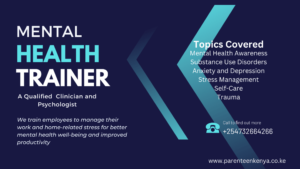Even drinking tea or coffee can't give you the energy you need to make it through the day. In its place, you feel constantly sad, empty, and hopeless. Other symptoms you could be experiencing include:
- Feelings of worthlessness
- Diminished ability to think or concentrate
- Insomnia or hypersomnia nearly every day
- Significant weight loss or gain without dietary changes
Experiencing these feelings at work can be overwhelming. You know you need to seek professional help, but you fear because they may recommend you take medication.
That's why you are here, wondering if there's a way to beat the depressive feelings without taking drugs.
To help you out, we will discuss five things you can do to beat depression without taking medication. However, this article will not rule out the importance of medication for severe depression.
#1. Reconsider Your Lifestyle Habits
Oftentimes, poor habits related to diet, exercise, and sleep can worsen symptoms of depression. Let's look at how these factors impact depression.
Dietary Role
When your diet is poor and lacks essential nutrients like Omega-3s, vitamins, and minerals, your brain function suffers. Deficiencies in these nutrients have been directly linked to an increased risk of developing mood disorders like depression.
Additionally, when you consume high amounts of sugary and processed foods, your blood sugar levels spike and crash rapidly. These fluctuations can cause you to experience mood swings, irritability, and fatigue—all of which worsen depressive symptoms.
Emerging research also shows a strong connection between your gut and your brain. Unhealthy diets disrupt your gut bacteria balance, leading to inflammation. This inflammation can negatively impact your brain function and make you more prone to developing symptoms of depression.
So, eating a nutritious, whole-food diet and controlling blood sugar levels gives your brain the nutrients it needs, avoids inflammation, and stabilizes your mood.
Place of Exercise
When you start exercising regularly, you'll notice your body releases more endorphins— the feel-good brain chemicals that act as natural painkillers and mood boosters.
Regular physical activity has been shown to increase endorphin production, reducing symptoms of depression and anxiety.
You'll also encourage the growth of new brain cells and strengthen connections between existing ones every time you exercise. This neuroplasticity can improve your overall brain function, making it more resilient to stress and potentially alleviating depressive symptoms.
Finally, regular physical activity is proven to enhance sleep quality. When you get improved sleep patterns, it has a direct positive impact on your mood regulation. You'll feel more truly rested and less prone to feelings of depression.
The Need for Sleep
When you don't get enough sleep, the brain's chemical balance is disrupted, including serotonin and dopamine, which regulate mood.
Sleep deprivation leads to decreased production of these neurotransmitters, intensifying feelings of sadness and hopelessness.
Lack of sleep also impairs cognitive functions like decision-making, problem-solving, and emotional regulation. These impairments can exacerbate feelings of stress and frustration, worsening depressive symptoms.
Additionally, adequate sleep acts as a buffer against stress. When you're sleep-deprived, you tend to react more strongly to stressors, making it hard to cope and leaving you more vulnerable to depression.
#2. Recognize Negative Thought Patterns
Depression often goes hand in hand with increased negative thinking. Catching and correcting distorted thought patterns is an impactful step in lifting your mood naturally.
Pay close attention to self-talk throughout your workday. Make a note of automatic negative thoughts and cognitive distortion (unhealthy processing) explained in the following table:
| Cognitive Distortion | Description |
| Filtering | Only focusing on the bad and filtering out the good. Example: "I made one fairly mistake, so I'm a complete failure." |
| Catastrophizing | Blowing things out of proportion. Example: "If I miss this sensitive deadline, I'll lose my job." |
| Black-and-white thinking | Only seeing in extremes. Example: "If I'm not perfect in this area, I'm a total failure." |
| Overgeneralization | Broad conclusions based on isolated incidents. Example: "I felt awkward in one meeting, so all my coworkers must think I'm incompetent." |
| Personalization | Assuming responsibility for external events or others' emotions. Example: "Their awful mood is my fault; I must have done something terrible." |
| Mind Reading | Believing you know what others think, usually assuming they view you negatively. Example: "I can tell they're talking about me and laughing." |
When you notice distorted thinking, pause and challenge it.
Ask yourself: Is this thought overly harsh? Is there evidence that contradicts it? Could I view this more positively? Then, actively reframe the thought. For example:
- "I'm a failure" becomes "I'm human and made a simple mistake. I can definitely improve."
- "I'll lose my job" becomes "Let me approach my boss to request a reasonable extension."
- "I'm totally incompetent" becomes "I had one awkward interaction but did good work overall."
With practice, you can catch negative thought patterns as they arise and reframe them in a balanced way. Over time, the positive outlook you cultivate will start to come automatically, lifting the haze of depression.
Avoid judging yourself for negative thoughts—simply notice them, adjust them to be more realistic, and move forward with clarity.

#3. Adopt Stress Management Techniques
Workplace stress can accumulate and become a major trigger for depression. Actively managing and reducing stress is essential to maintain mental health on the job without medication. Try these proven stress management techniques:
- Take short breaks to breathe deeply or go up and down a flight of stairs to clear your mind. Even 30 seconds of making a short prayer helps hit the reset button when stressed.
- Prioritize tasks, and don't overschedule yourself. Pace your workload and say no to non-essential demands.
- Take "micro-breaks" to stand up and stretch when fatigue sets in. Gentle movement alleviates tension.
- Spend a few minutes before work, envisioning the day going smoothly. Visualization and asking God to guide you through the day prepares you for success.
- Maintain work-life balance through hobbies, socializing, and relaxing on weekends. Don't overwork and burn out.
- Leave work at work. Set a cut-off time for emails in the evening to prevent job stress from invading your personal life.
- Ask for help when feeling overwhelmed. Most team members want to support you. Delegate tasks if your plate is too full.
Equipping your toolbox with healthy stress management habits will build your resilience, preventing work anxieties from escalating into depression.
Here is a more detailed article on stress management techniques: 4 Stress Management Techniques for Employees in the Workplace

Your support system can include friends, family, colleagues, and mental health professionals. These connections not only provide comfort but also play a vital role in your overall mental and emotional well-being.
Your family and friends are often your first line of defense. Sharing your feelings and concerns with loved ones can alleviate the burden you carry. Their understanding and empathy create a nurturing environment where you can express yourself without judgment.
Support groups offer a unique platform (online or in-person) to connect with individuals who are experiencing similar struggles as you. Sharing your experiences with a group of people who truly understand can be refreshing.
Support groups provide a sense of community, allowing you to learn from others, gain perspective, and realize you are not alone in your journey.
Colleagues and workplace support also play a significant role, considering the amount of time you spend at work. Building positive relationships with colleagues can create a supportive atmosphere for you, reducing stress and fostering a sense of community.
In essence, a strong support system acts as a lifeline, helping you navigate the challenges of depression. Besides, reaching out for support is a sign of strength, and together, these connections can provide the foundation for your journey toward healing and recovery.
#5. Explore Counseling Options
Seeking professional counseling or therapy can be hugely beneficial when dealing with depression, and you do not want to take medication.
Experienced counselors are equipped with specialized training to help you navigate your mental health challenges. Here are some counseling approaches to consider.
| Therapy Type | Approach |
| Cognitive Behavioral Therapy (CBT) | Focuses on identifying and changing negative thought patterns and behaviors. |
| Psychodynamic Therapy | Explores unconscious processes and unresolved conflicts that could be the root cause of depression |
| Interpersonal Therapy (IPT) | Focuses on improving relationships and communication skills. |
| Dialectical Behavior Therapy (DBT) | Combines cognitive and behavioral therapy techniques with acceptance and mindfulness strategies. |
In addition to individual counseling, you can also participate in group therapy that helps you process challenging issues with other people going through similar mental health challenges.
Mental Health Wellness Kenya facilitates group therapy sessions in the workplace. Our experienced psychologist will help the group members navigate the challenges they face and use group dynamics to their benefit.
Contact us today to start your workplace group therapy session or employee mental health training needs.
Images from Unsplash, Giphy, and Pexels



